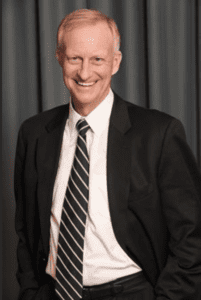Jack Evans Report
By • April 5, 2017 0 252
There was a fair amount of uneasiness in the region when Donald Trump won the presidency last November. In particular, while he promised on the campaign trail to invest $1 trillion in our nation’s infrastructure, Republicans have historically directed federal infrastructure spending to highways and bridges, rather than to transit systems. There was a fear that Republican control of the federal government would be bad — perhaps very bad — for D.C.’s Metro system.
While we haven’t yet seen an increase — or decrease — in federal funding for Metro this year, the new administration has been willing to discuss how to fix Metro.
I recently met with Secretary of Transportation Elaine Chao to lay out the challenges: a $300-million operating-budget shortfall this year, $18 billion in capital investment needed over the next decade and a $2.8-billion unfunded pension liability. Chao couldn’t commit to any of my suggested actions for the federal government to pay its fair share and help fund the long overdue repair and maintenance work. But she indicated she’d be willing to continue to talk and to explore ways to help our ailing transit system.
The same seems to be the case on Capitol Hill. While there isn’t a lot of bipartisan cooperation in Washington these days, Metro just may be the entity that combines infrastructure, homeland security and economic development — not to mention transportation for 42 percent of the federal workforce here — to bridge the political divide.
Last week, Rep. Mark Meadows (R-North Carolina), chair of the House Freedom Caucus, a conservative group in the House that believes in significantly reducing federal spending, said at a hearing on the progress of Metro’s SafeTrack rebuilding program that he’d be willing to expend political capital to work with Del. Eleanor Holmes Norton (D-D.C.) and others on a bipartisan solution to help the Metro system.
I’ve met with Meadows in the past, and he had expressed a similar willingness to me privately. We now need the regional delegation in Congress — Norton and the representatives and senators from Maryland and Virginia — to continue to seek out Republican support for increased federal funding for Metro.
The ultimate act of bipartisanship will require the Republican legislature and Democratic governor in Virginia, the Democratic legislature and Republican governor in Maryland and the Democratic Council and mayor in Washington, D.C., all to finally agree — and to act on a dedicated one-percent regional sales tax for Metro within the next year. If the federal government can put party politics aside to fix Metro, the region has no excuse not to move quickly to put the system on a sound footing.


